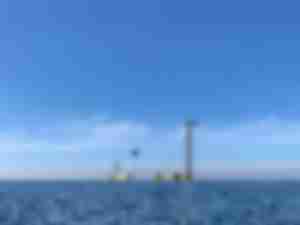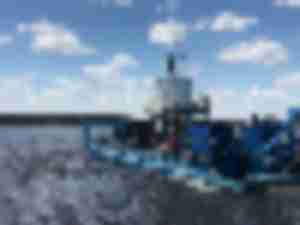California offshore wind farms will create massive new economic development at ports
The State of California proposes to build 25 gigawatts of offshore wind energy by 2045 requiring nearly 1,700 new wind turbines, built at a rate of 92 floating turbines per year, and the Humboldt Bay Harbor District in Northern California wants to be the manufacturing center.
Port of Los Angeles Director Seroka urges West Coast labor contract
Port of Los Angeles Executive Director Gene Seroka argued for a “crucial” West Coast labor contract while describing last week’s longshore shutdown of the Ports of Los Angeles and Long Beach as a “pause.”
The Benefits of Water Injection Dredging for U.S. Ports
HDR Senior Dredging Engineer Joe Wagner, P.E., D.NE, BCEE, explains the technique, how to determine whether it’s a good fit for a port and shares examples from where it’s been used.
Can a book written about the 1960s negotiations offer a path to a new ILWU-PMA agreement?
In 2023, resistance to automation is a factor delaying a new contract between the International Longshore and Warehouse Union (ILWU) and the Pacific Maritime Association (PMA). It is instructive to recall that back in 1960 the ILWU, under its founding President Harry Bridges, helped trail-blaze mechanization (and containerization) at U.S. West Coast ports.
Temporary shutdown at Ports LA and Long Beach spark escalation concerns
On April 7th, the twenty-four-hour shutdown of the Ports of Los Angeles and Long Beach sparked concerns by U.S. agricultural exporters that such stoppages could...
Not Boxed-Out
Developments and opportunities in the container terminal business, from automation to Altasia to more Asian
Backed by Amazon & CBRE, Forum Mobility is building harbor truck charging stations in California
The venture is supported by a new $400 million joint venture, led by the commercial real estate company CBRE. In addition, Homecoming Capital provided $100 million.
AGTC’s Friedmann says lack of ILWU-PMA contract could be “dangerous, permanent”
Agriculture Transportation Coalition (AGTC) Executive Director Peter Friedmann has again warned that the lack of a West Coast labor contract between the International Longshore and Warehouse Union (ILWU) and the Pacific Maritime Association (PMA) could be “dangerous” and “permanent.”
10 reasons the energy mix matters now more than ever
As the need to reduce greenhouse gas emissions gains momentum, the undercurrent of seismic cultural shifts is creating a challenging business landscape for energy companies to flourish. Indeed, varied energy-specific concerns continue to dominate the news cycle—both intra-industry related to technology modernization, scalability, adaptability, generational recruitment and more as well as environmental, societal, and cultural issues of consumer resonance.
Green revolution taps copper and aluminum
Will there be enough copper and aluminum for all that construction? And what’s going to happen to prices?
© Copyright 1999–2024 American Journal of Transportation. All Rights Reserved











